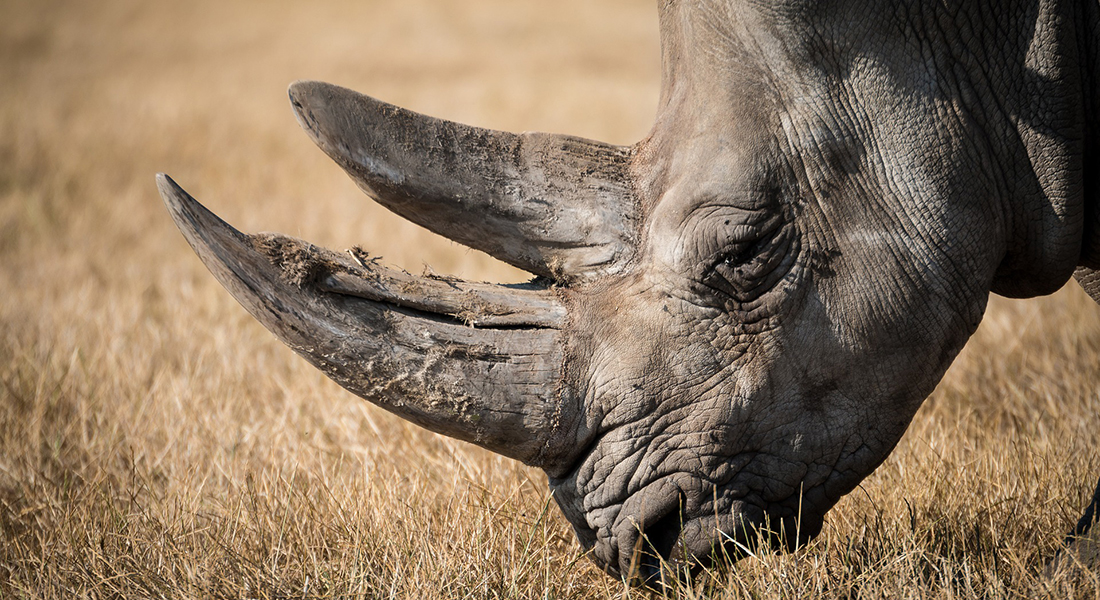Generating Insights to Reduce Demand for Rhino Horn in Vietnam - Applying Choice Experiments and the Theory of Planned Behavior to Assess Determinants of Demand
This study will provide crucial information for designing behavioural modification campaigns for the conservation of rhinos and constitute an important academic contribution to the understanding of Asian culture and consumerism in relation to wildlife products.

Illegal trade in wildlife products poses a significant threat to biodiversity conservation. The wildlife trade is also known to finance violence, contribute to destabilising national security, and hampers economic development in source countries. The trade in rhino horn is considered one of the most organized crimes, fueled by growing demand in Asia. This demand has contributed to pushing remaining wild rhino populations to the brink of extinction.
Meanwhile the question of whether a total ban or a tightly regulated trade is the most effective means of regulation is heatedly debated. However, no study has explicitly examined consumers’ preferences and trade-offs for these two options. Moreover, despite the urgency of understanding the drivers of demand the relative importance of the attributes of consumer’s choice to purchase rhino horn remains unclear.
This project aims to examine these questions based on an existing sample of rhino horn consumers in Vietnam. A literature review and interviews with key informants using the Consumer Culture Theory as a framework will be applied to explore the aspects of Asian culture and consumerism that drive rhino horn consumption. The project will also apply the Theory of Planned Behavior to obtain a detailed understanding of the socio-psychological processes and motivational drivers of rhino horn consumption. Finally, a choice experiment design will be developed to evaluate what interventions most effectively will reduce demand for rhino horn and to assess under which conditions people will comply with a ban on non-licensed rhino horn trade if a legal trade was established.
This study will provide crucial information for designing behavioural modification campaigns for the conservation of rhinos and constitute an important academic contribution to the understanding of Asian culture and consumerism in relation to wildlife products. The methodology and insights developed in this study will furthermore be applicable to investigating preferences and consumer behaviour towards other illicit products.
- Evaluating Tiger Bone Glue Behavior and Consumption in Hanoi, Vietnam.
Master's Thesis by Kasper Gadbert and Julie Vikkelsø Nielsen (2020). -
Evidence or delusion: A critique of contemporary rhino horn demand reduction strategies.
Dang, Vu Hoai Nam and Nielsen, Martin Reinhardt, (Human Dimensions of Wildlife, 2020). -
Reference group influences and campaign exposure effects on rhino horn demand: Qualitative insights from Vietnam.
Dang, Vu Hoai Nam, Nielsen, Martin Reinhardt and Jacobsen, Jette Bredahl (Rufford Small Grant Conference 2020). -
We asked people in Vietnam why they use rhino horn. Here’s what they said.
Dang, Vu Hoai Nam and Nielsen, Martin Reinhardt. (The Conversation, 2019). -
Understanding utilitarian and hedonic values determining the demand for rhino horn in Vietnam.
Dang, Vu Hoai Nam and Nielsen, Martin Reinhardt. (Human Dimensions of Wildlife, 2018).
Researchers
| Name | Title | Phone | |
|---|---|---|---|
| Jette Bredahl Jacobsen | Professor, Head of Section | +4535331746 | |
| Martin Reinhardt Nielsen | Associate Professor | +4535331726 |
Funded by:
This project has received funding from the European Union’s Horizon 2020 research and innovation programme under the Marie Skłodowska-Curie grant agreement No 801199.
Period: March 2019 – February 2022.

